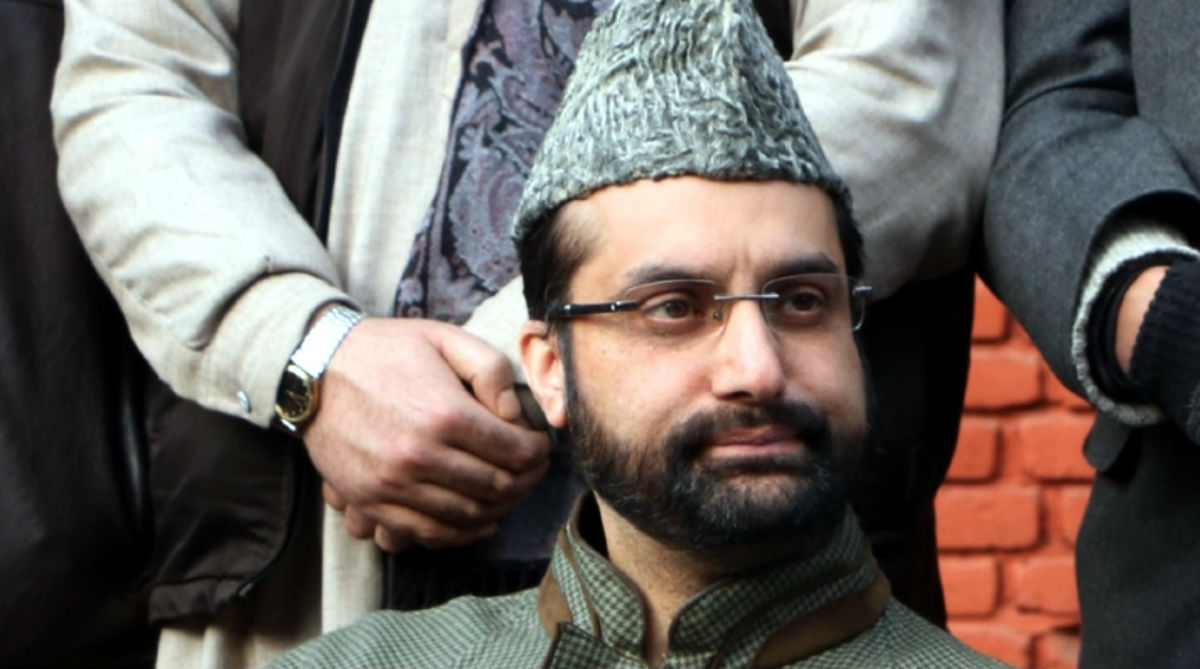Achan Garbage Landfill: Where Politics Meets Public Health -Achan Landfill Crisis
By: Javid Amin | Srinagar | 16 June 2025
A New Chapter for Mirwaiz
Mirwaiz Umar Farooq—a name synonymous with Kashmiri separatism for three decades—is now stepping into a different arena. Over recent weeks, he has redirected his influence from political resistance toward civic issues and environmental activism. His sharp focus on public sanitation, infrastructure decay, and health crises has sparked debate: is this a genuine realignment or a strategic recalibration in a dramatically changed Kashmir?
Mirwaiz’s Historical Role in Separatism
For over thirty years, Mirwaiz Umar Farooq has occupied a unique space as both religious cleric and separatist leader. From the pulpit of Srinagar’s historic Jamia Masjid, he articulated UN resolutions, human rights violations, and pro‑Pakistan sentiment.
-
UN resolutions: Echoing calls for plebiscite and justice
-
Human rights: Highlighting alleged abuses by security forces
-
Pro‑Pakistan tone: Aligning with separatist unity under Hurriyat
He led Friday sermons (“khutbahs”) that mobilized sentiment, emotion, and political purpose. His religious and political identities were deeply intertwined—Mirwaiz the cleric offering spiritual frameworks for separatist narratives.
Post‑370 Kashmir: The Turning Point
August 2019 marked a seismic shift. The Indian government revoked Article 370, dismantling Kashmir’s autonomous status.
-
Many separatist leaders were detained under the Public Safety Act or anti‑terror laws.
-
Government control tightened; public protests and mass mobilizations waned.
-
Separatist organizations fragmented; voices were silenced.
Mirwaiz, however, remained untouched by such charges. He underwent lengthy house arrest but maintained his religious credentials intact. Freed in mid‑2023, he reemerged—yet not with the familiar separatist rhetoric. Instead: environmental appeals, concern for civic decay, and a focus on everyday hardships. The question: why the pivot?
Achan Landfill Crisis: Igniting the Civic Platform
Mirwaiz described the stench from Srinagar’s Achan landfill as a “full-blown environmental emergency.” His words carried visceral weight—highlighting:
-
Danger to public health, especially children and the elderly
-
Breakdown in basic municipal services
-
The broader sense of government failure in addressing civic decay
By raising this issue, he tapped into a shared frustration among Kashmiris. It was no longer about remote geopolitical struggles; it was about homes, lungs, and health.
From Sermons to Sanitation: Broadening the Agenda
Mirwaiz’s interventions now include:
-
Public health: linking garbage to disease outbreaks
-
Urban infrastructure: sewage, waterlogging, road collapse
-
Environmental protection: air and water pollution, deforestation
This shift makes his message more relatable to families in Srinagar and across Kashmir. The next time he speaks at the Jamia Masjid, it could be about mosques’ drainage systems rather than UN directives. It’s a recalibration of focus—from distant borders to shared backyards.
Political Repositioning: Strategy or Substance?
Some interpret the pivot as a calculated move:
-
Surviving relevance: With separatist pathways choked, civic issues provide fresh ground.
-
Rebuilding trust: By advocating local concerns, he may rebuild public support.
-
Creating space in the system: Civic activism could allow permissible engagement—engagement authorities might accommodate more easily than separatist protests.
Is this a pragmatic adaptation or a deeper transformation?
Moderate Legacy: Credibility in Transition
Key factors supporting Mirwaiz’s shifting narrative:
-
No terrorism charges or extended PSA detention
-
Respected religious stature: inherited as Mirwaiz of Kashmir
-
Moral authority: seen as a less hardline, more moderate voice
Where others were held in custody, Mirwaiz retained freedom—allowing him to maneuver outside typical reprisals. He possesses the legitimacy to redirect his platform without being dismissed as co-opted.
Grassroots Grounding: House‑Arrest to Households
After years in confinement, Mirwaiz emerged with a different tone—less combative, more conversational. He repeatedly emphasized the urgency to “engage with the ground.” His campaigning now includes:
-
Wake-inspecting garbage dumps
-
Visiting hospitals and slum areas
-
Taking citizen complaints to authority forums
These aren’t symbolic gestures—they’re attempts to rebuild trust at the street level.
Skepticism and Counterarguments
Despite supportive interpretations, many Kashmiris and analysts remain cautious:
-
Tokenism claims: Is this just optics—civic rhetoric without political weight?
-
Political cover?: Some suspect the government might allow it to placate popular discontent.
-
Diluted agenda: Could focus on environment distract from core rights issues like autonomy?
The complexity lies in discerning sincerity from survival strategy—as always in politics.
Wider Socio‑Political Context in Kashmir
Mirwaiz’s pivot must be seen in a broader tapestry:
-
Local governance void: Srinagar Municipality struggles with waste, roads, and planning
-
Citizen fatigue: Many Kashmiris are weary of violence and separatist deadlock
-
Environmental challenges rising: melting glaciers, water shortages, landslides
This environment paves fertile ground for civic leadership to fill voids left by failed politics.
Implications for Separatism and Governance
If civic-driven religio-political leadership takes hold:
-
Separatist narratives may evolve: blending local development with high-level autonomy goals
-
Civil society role strengthens: NGOs and grassroots networks can join forces
-
Governance models shift: could build participatory municipal politics where trust is low
Alternatively, if perceived as empty gesture:
-
Further alienation: especially among youth expecting political change
What Lies Ahead: Future Scenarios
Possible trajectories:
-
Deepening civic role: Launching campaigns on water management, non‑violent protests for clean air
-
Re-mixing separatist and civic narratives: Linking pollution issues back to political disenfranchisement
-
Government collaboration: Working with municipal bodies on joint task forces—this may mutate into co-optation
-
Return to old rhetoric: If political opportunity returns, focus may shift back
Mirwaiz’s choices in the coming year will illuminate whether the ideological shift is durable.
Bottom-Line: Civic Crisis as Catalyst
Mirwaiz Umar Farooq’s pivot—from fiery political resistance to civic engagement—carries deep significance in a landscape once defined by brash separatism. Whether this signals a strategic survival maneuver or a genuine new chapter depends on how he sustains the shift. But one fact has crystallized: civic and environmental crises represent the new battlefield in Kashmir’s contested narrative.



